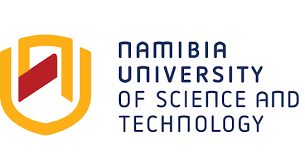Location
Known for being a trendsetter in higher education and applied research internationally, the Namibian University of Science and Technology (NUST) aims to become the leading university in Africa. The Department of Land and Property Sciences (DLPS) offers relevant degrees at undergraduate and post-graduate level including master and doctorate degrees. The Department of Land and Property Sciences (DLPS) at NUST together with the Integrated Land Management Institute (ILMI) are playing a leading role in research and outreach in the field of land governance and administration.
The purpose of NELGA (Network of Excellence for Land Governance in Africa) is to enhance the role of selected African Universities and academic institutions in support of land policy development, implementation and monitoring. NUST was selected as a NELGA node for Southern Africa, because of its proven leadership and track record in academic education, training and research on land governance. To date NUST as a regional NELGA node has granted 6 scholarships (4 masters and 2 PhD’s) on land governance via the DAAD scholarship. The node is in the processes of identifying partner institutions for full implementation of the NELGA activities. One of the key work packages is to establish a regional node for NELGA Southern Africa.
Members:
Resources
Displaying 26 - 30 of 65The role of universities in participatory informal settlement upgrading: experiences from Kenya, Namibia, Uganda, and Zambia.
This document is a report on the session that focused on the role of universities in participatory informal settlement upgrading at the workshop titled "Bottom-up city Wide planning in Gobabis", which took place on 11-13 May 2017, in Gobabis. The event was convened by the Namibia Housing Action Group (NHAG) and the Shack Dwellers Federation, with support from Shack Dwellers International (SDI).
The Flexible Land Tenure System in the Context of the Sustainable Development Goals
The purpose of this study is to investigate whether the Flexible Land Tenure System (FLTS) in
Namibia is in line with the Fit-For-Purpose (FFP) land administration approach which is
developed in order to implement the Sustainable Development Goals (SDGs) at national and
local level in developing countries by providing tenure security to poor people and creating
country-wide land recordation systems. The FFP approach is based on a Minimum Viable
Product focusing on the specific local tenure security needs, flexibility on survey accuracy,
The Flexible Land Tenure System in the Context of the Sustainable Development Goals
The purpose of this study is to investigate whether the Flexible Land Tenure System (FLTS) in
Namibia is in line with the Fit-For-Purpose (FFP) land administration approach which is
developed in order to implement the Sustainable Development Goals (SDGs) at national and
local level in developing countries by providing tenure security to poor people and creating
country-wide land recordation systems. The FFP approach is based on a Minimum Viable
Product focusing on the specific local tenure security needs, flexibility on survey accuracy,
Leasehold as a Vehicle for Economic Development
Secure tenure and registered land rights are widely believed to be necessary for access to credit, well functioning land markets and economic development. As a result Namibia introduced long term leasehold rights over communal and commercial land for resettlement purposes in order to address preindependence imbalances in land holdings. The purpose is to bring the resettled beneficiaries into the mainstream of the economy, but this has not happened.
Sustainable Land Governance in Support of the Global Agenda
This paper is work in progress and draws from previous research. The paper supports the public lecture on Sustainable Land Governance in Support of the Global Agenda given at Namibia University of Science and Technology (NUST) on 4 March 2016.


